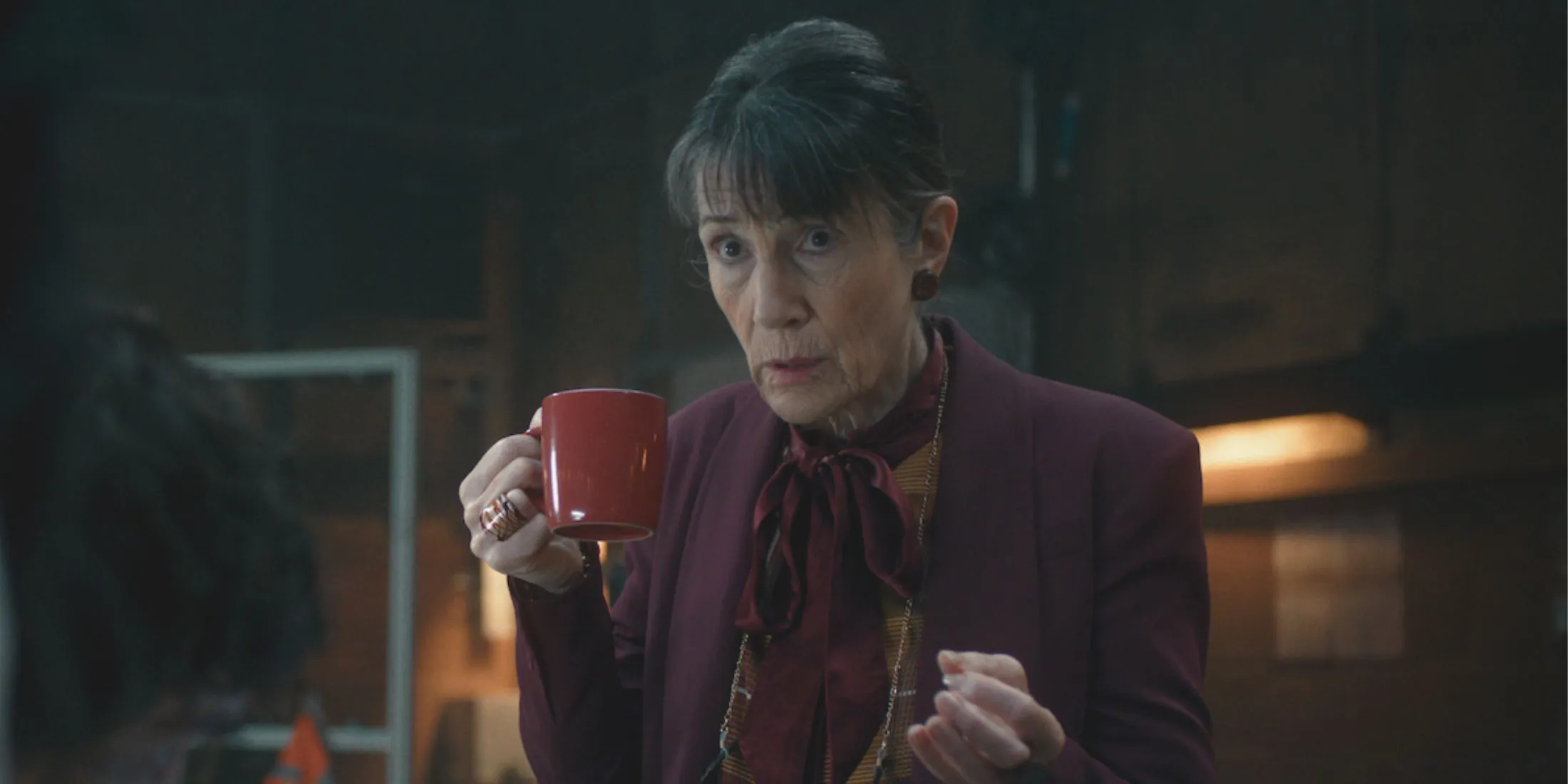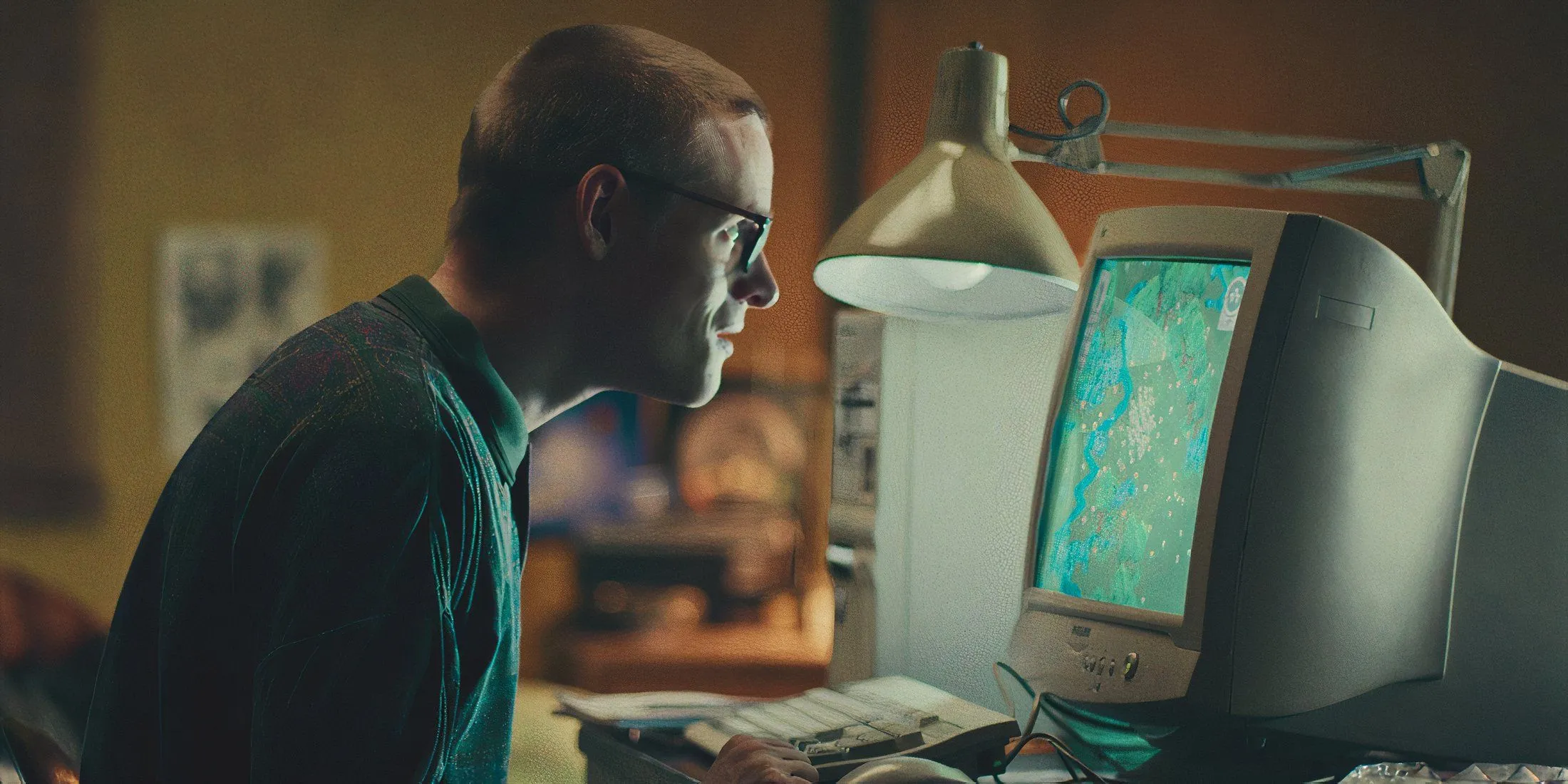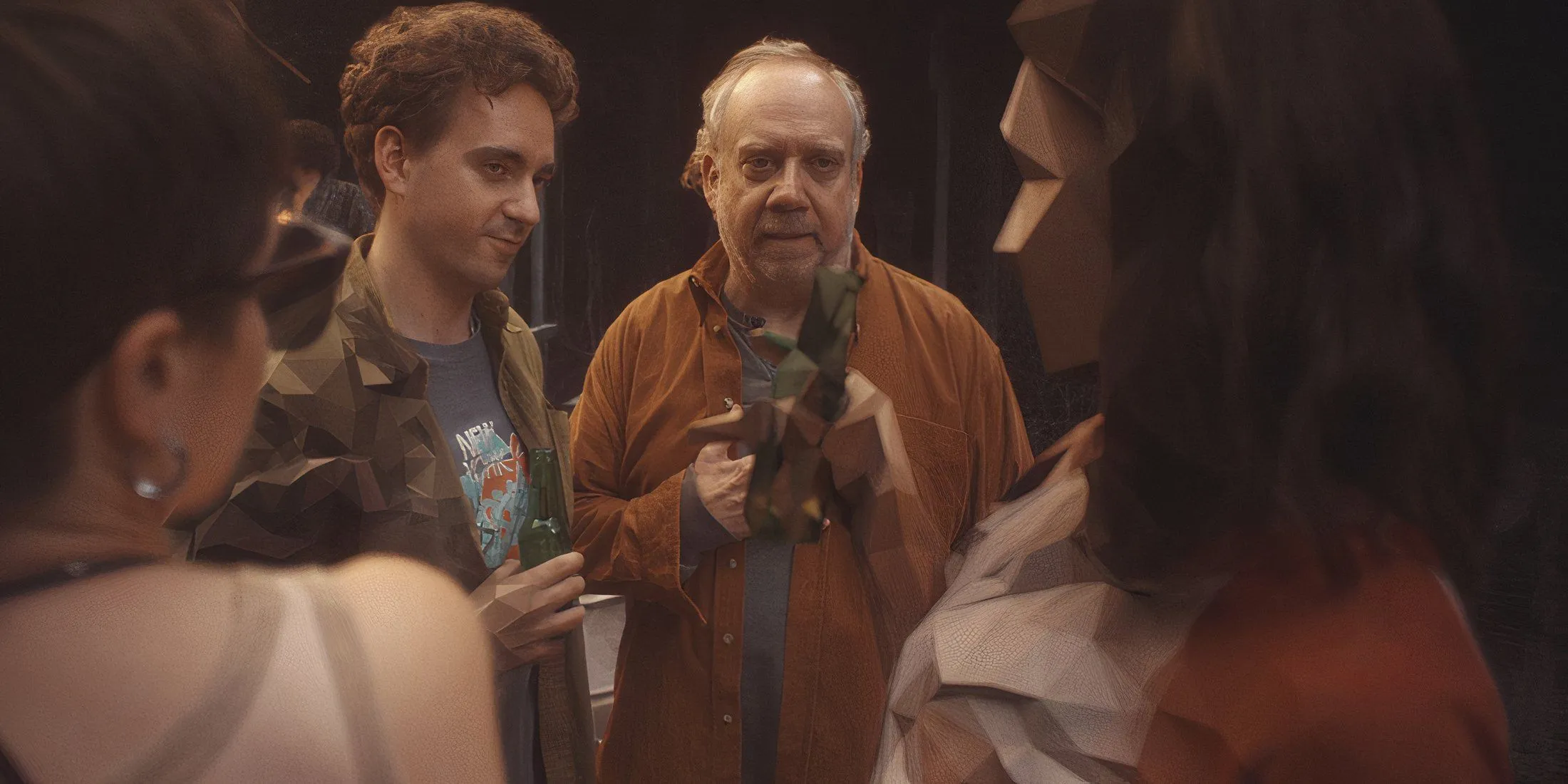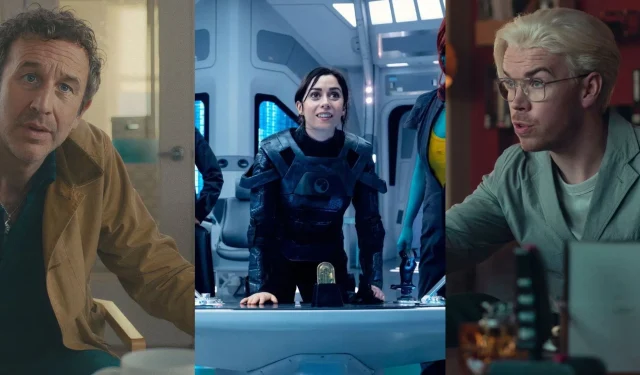Overview
- Some episodes shine due to outstanding storytelling, while others falter with improbable developments.
- “Hotel Reverie”provides a refreshing departure from the show’s often dark themes but suffers from lackluster character development.
- “USS Callister: Into Infinity,”a sequel, captivates with its satisfying resolution and homage to genre classics.
The long-anticipated seventh season of the renowned series Black Mirror has finally premiered, and it does not disappoint. This six-episode installment is among the finest the series has to offer, delving into themes like memory, gaming, and classic cinema while delivering chilling and poignant conclusions that resonate even after the screen goes dark.
Throughout the season, viewers experience an array of memorable episodes, some of which leave a deeper imprint than others. These standout episodes provide insightful reflections on contemporary issues, compelling narratives that culminate in heart-wrenching endings, and the introduction of fresh themes and concepts that are increasingly relevant in today’s media landscape. Each episode boasts its own strengths and weaknesses, making it easy for fans to identify their favorites—and as with previous seasons, a few episodes may disappoint.
This article contains spoilers!
6. Bête Noire
A Bit Too Far

This second episode opens with a strong premise but devolves into absurdity by its conclusion. One of Black Mirror’s hallmarks is its skillful integration of technology, media, and psychological themes into compelling narratives. Initially, the episode grabs attention with a thought-provoking take on memories and the Mandela Effect, analyzing how perceptions can diverge from reality.
The suspense builds as the character Verity becomes increasingly unsettling, keeping viewers on edge. However, the climax unravels with the introduction of an unrealistic device—a reality-altering pendant—compromising what could have been a profound exploration of paranoia and control. Instead of a grounded narrative, it veers into the realm of the fantastical, undermining the solid build-up with an unexpected and jarring conclusion.
5. Hotel Reverie
Beautiful Yet Slightly Overdramatic

“Hotel Reverie”is an enjoyable episode that offers a welcome respite from the series’ usual bleakness. It focuses on relationships and love amid a backdrop of rapid technological evolution, creating a dialogue that resonates with contemporary viewers. The episode’s strength lies in its nostalgic setting and engaging narrative, effectively immersing the lead character in a classic film while exploring deep emotional connections with an AI character.
However, the supporting cast of tech enthusiasts and film executives, particularly Awkwafina’s character, detracts from the narrative’s warmth. Their interactions lack depth, inadvertently overshadowing the more compelling film characters and moments. While the episode ultimately leaves viewers with an uplifting twist, it also highlights the potential for a richer exploration of its central themes by allowing the film’s narrative to take precedence.
4. Plaything
Actors Leading the Charge

“Plaything”emerges as a standout episode, showcasing a simple premise with profound philosophical and moral implications. The episode emphasizes character depth, illuminating the inner struggles individuals face to remain authentic. Peter Capaldi delivers an exceptional performance as Cameron Walker, transcending typical portrayals to create a believable, layered character.
Returning to familiar settings from “Bandersnatch,”this narrative intricately explores human psychology within the context of gaming, heightening tension through unexpected twists and revelations. Although the conclusion may feel somewhat predictable, the overarching themes offer an engaging, often humorous look at a unique facet of reality, aligning beautifully with the show’s intent to reflect contemporary life.
3. Common People
Painful and World-Shattering

If there is an episode that embodies the raw depiction of human suffering, it is undoubtedly “Common People.”This episode serves as a stark critique of the disparities in healthcare access, highlighting the consequences of wealth inequality in modern society. Its unforgiving narrative lays bare the struggles faced by those without financial resources, offering bleak portrayals of an unjust system.
The show poignantly illuminates the anguish and hardships that many endure, integrating real-world technological themes, such as invasive advertisements and restrictive services that burden users financially. While difficult to watch, “Common People”serves as a crucial reminder of the impact of economic hardship on the lives of countless individuals, exposing the relentless exploitation by corporations driven by greed.
2. USS Callister: Into Infinity
Welcome Back to the Ship

As the series’ first true sequel, “USS Callister: Into Infinity”successfully revisits one of its beloved episodes without overstaying its welcome. The return of familiar characters creates a sense of continuity, while their interactions maintain the heart and humor that originally captivated audiences. Clever nods to the genre, particularly through its homage to Star Trek, contribute to its appeal.
This episode exemplifies the delicate balance of crafting a sequel that respects its origins while delivering fresh experiences. Although it may not surpass the original, it nevertheless stands out as a top-tier episode, offering viewers a delightful blend of nostalgia and entertainment that resonates throughout its runtime.
1. Eulogy
A Tale as Old as Time

When it comes to evoking emotion through simplicity, “Eulogy”excels. This episode strips away the series’ characteristic dark themes to offer a poignant exploration of love, loss, and memory. By utilizing familiar technological elements, the story weaves a narrative that highlights the significance of personal connections and the complexities of relationships.
Breaking from traditional plot structures heavy with twists, “Eulogy”focuses on the raw emotions tied to love and acceptance, resulting in a narrative comparable to classics like “San Junipero.”Here, technology acts as a facilitator rather than the focal point, enhancing the storytelling experience. Although the ending may not deliver a predictable “happily ever after,”it resonates deeply, highlighting the beauty of acceptance in the face of missed opportunities.


